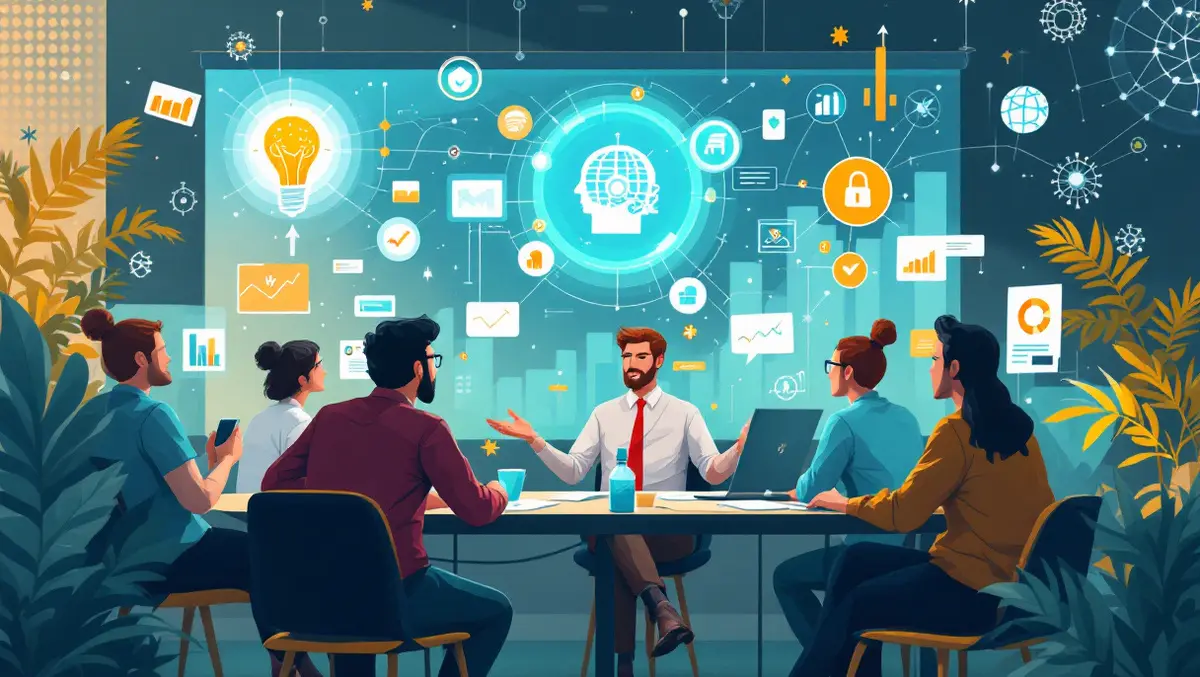
OpenAI forum explores how reasoning AI will shape global economics
At a forum hosted by OpenAI, speakers from the company and academia offered an in-depth look at the evolving landscape of artificial intelligence, tracing the shift from traditional pre-training models to a new generation of reasoning-based systems.
They also addressed the profound economic, political and organisational implications of these technologies.
Kicking off the session, Noam Brown, Member of Technical Staff at OpenAI, reflected on what distinguishes current models from past breakthroughs in AI. "There have been a lot of cool, impressive results in AI for a long time… but what's really special about ChatGPT and the AIs that we see today is the generality—the fact that they can do so many different things without being targeted at those things."
Brown detailed how early models were trained to predict the next word in a sequence using vast internet text data. "Somewhere in that internet is chess games… it has to understand chess… it has to understand how good these players are," he said. Similarly, to predict the end of a mystery novel, "it has to understand the characters, the motivations… a world model of how an axe can move through the air."
This "pre-training paradigm" formed the basis for models like GPT-2 and GPT-3. However, scaling this approach quickly becomes costly. "GPT-2 costs, I think, $5,000 to $50,000… GPT-4 costs around $50 million," Brown noted.
To address these limitations, OpenAI has begun exploring a second paradigm: reasoning. This involves investing more in inference—the thinking a model does when responding—rather than just training. "What if instead of just scaling the training cost, we scale up the amount of thinking that the model does before responding?" Brown asked. This idea underpins OpenAI's "O series" models.
"GPT-4… costs a penny to query. O1… it's going to think for maybe a minute… and it's going to cost a dollar," Brown explained. "But that response is going to be a lot better than the one that cost a penny."
Using benchmarks to demonstrate the shift, Brown showed that GPT-4 scored 13% on the American Mathematics Exam, while O1 preview reached 57%, and the full O1 model reached 83%. On competition coding, O1 reached the 89th percentile compared to GPT-4's 11th. OpenAI's O3 model, yet to be released at the time of the event, scored in the top 0.1% of all human competition coders.
Brown said this marked a meaningful shift. "I fully expect that by the end of this year our models will be superhuman at competition coding."
He cautioned against dismissing current models based on past performance. "A lot of what they're pointing to as flaws is things that were true six months ago but are no longer true today," he said, highlighting reasoning advances such as recognising that certain tasks are logically impossible.
OpenAI's Chief Economist Ronnie Chatterji spoke next, shifting the discussion to geopolitics. "The idea of how a more divided geopolitics, how great power competition… are shaping our current environment… is really first order at OpenAI."
He described how internal debate at OpenAI revolved around whether to frame AI development in terms of "democratic AI" versus "autocratic AI." While some supported the move, others raised concerns. "If we did so, we might both lose credibility in key markets… and we actually obviously might lose access to key talent."
Chatterji also addressed the merging of economics with national security: "Economics and national security are being blended in a lot of contexts… problems are coming at us and people are looping us into those discussions."
In group discussions, education emerged as a major theme. "How does students using AI in the classroom… affect how you do assessment?" one participant asked. Some compared the issue to calculators: "You gotta get really good at using a calculator."
Others focused on AI's role in the economy. One group proposed a "multidimensional task measure" combining economic value, task risk and complexity. Another explored the "last mile delivery" of services like healthcare in developing markets, noting that in some contexts "the outside option is basically receiving no healthcare."
A further session examined the enterprise landscape. "AI is fundamentally reshaping the enterprise landscape," one participant said. Rather than simply replacing jobs, the transformation is about "a race to technologise."
Discussion also turned to AI's implications for economics itself. Hemanth Asirvatham of OpenAI observed, "If we are to think that AI is some transformative economic technology, we should also think it is a transformative technology for the field of economics."
Participants suggested new research methods, such as using fine-tuned models to identify relationships in complex datasets or simulate human preferences in economic modelling.
The event concluded with a broader reflection on the limits of current models and the institutional structures needed to support AI's integration into society. Participants debated whether AI progress could hit a ceiling, how to define task boundaries, and what institutions are needed for a future shaped by AI agents.
As the forum closed, Chatterji left the group with a forward-looking message: "I hope you'll think of this as not sort of the end of a one-off event, but… the beginning of a journey that we're gonna be on together."


